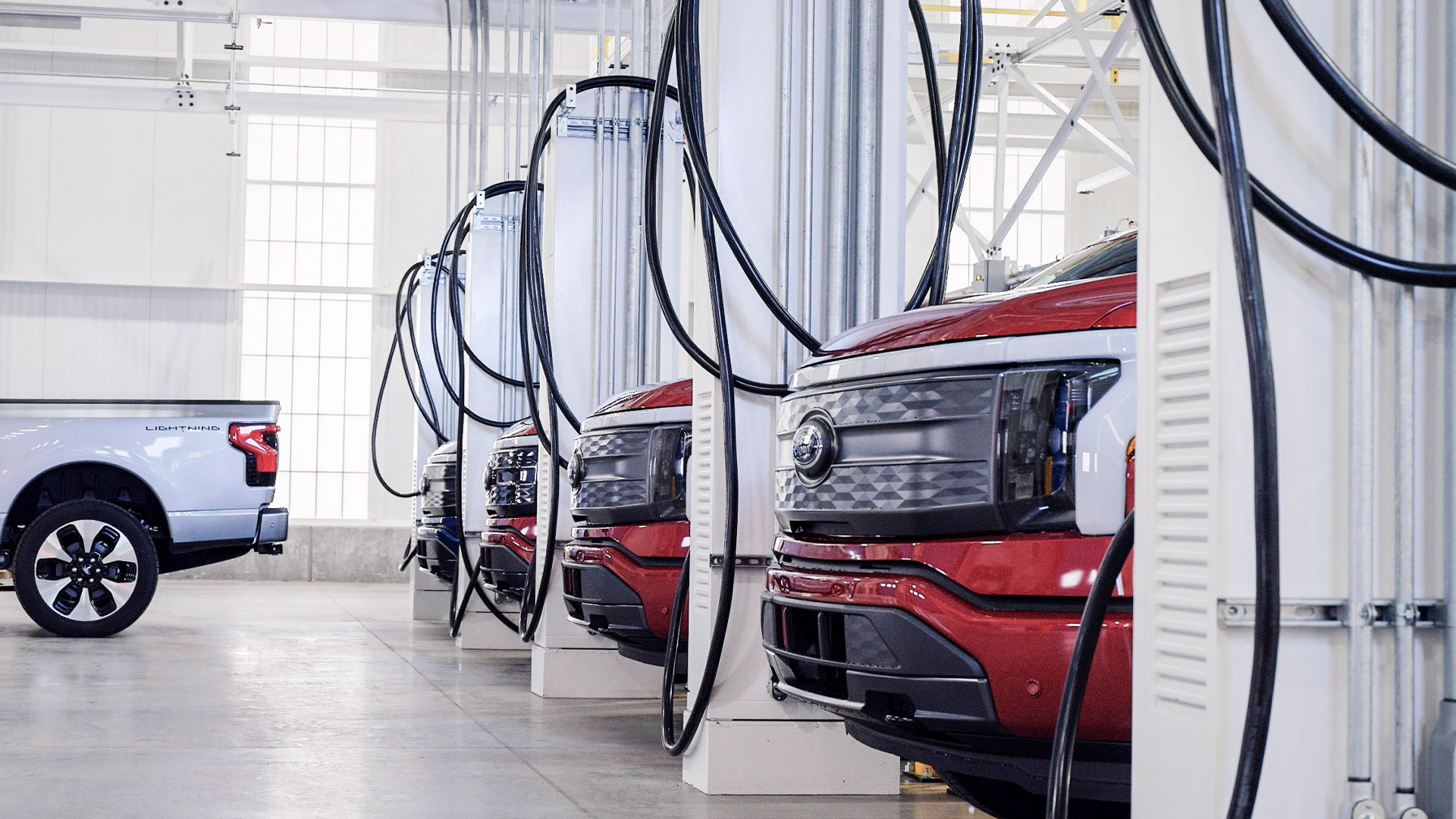

Ford has had a rough year with dealer markups. In September, it decided that it has simply had enough. As part of its initiative to push EV sales, the automaker decided to revamp its dealer strategy, including a new haggle-free pricing structure and a mandatory investment for dealers that want to get on board with selling the brand’s electric cars.
Well, as it turns out, some dealers aren’t exactly thrilled with the idea of dumping up to $1.2 million back into their business just to be permitted to sell Ford’s new EVs. Dealer associations in at least 13 states have reportedly pushed back on the matter, according to Automotive News, citing unfair advantages for dealers who choose to pony up the cash.

The Southern Automotive Trade Association Executives, an industry group that represents 12 state dealer associations, says that Ford’s so-called Model E program “fails to make all vehicle models available to dealers on comparable terms and fails to allocate equitable quantities of EVs to Ford franchised dealers relative to their assigned market areas.”
Jeff Devlin, the CEO of the Pennsylvania Automotive Association, reportedly told Ford CEO Jim Farley in a letter that the program “violates multiple provisions of Pennsylvania law.” Likewise, the CEO of the Virginia Automobile Dealers Association, Don Hall, suggested that it was against state franchise law to allocate fewer vehicles to dealers based on the criteria of equipment investments.
Automotive News says that Ford disputed this claim, noting that the automaker was “confident” that the provisions of the Model E were not only legal but also that the OEM had received overall positive feedback from its dealers.
Under the program, dealers will align with one of two business units for passenger vehicle sales: Ford Blue Oval for combustion-powered vehicles, or Ford Model E for electric vehicles. Should a dealer want to sell EVs, it would choose to opt-in to the Model E program. This would require a minimum investment of around $500,000 to install at least one DC Fast Charger on the dealer’s lot but comes with a limit to the number of EVs that these low buy-in dealerships could sell per year. Businesses that want to become an “Elite” certified dealer and remove said cap would need to commit to installing two DC Fast Chargers at an estimated cost of around $900,000, as well as pledge to install a third charger by 2026—bringing the total investment up to around $1.2 million.
Ford stressed that this program is optional, and dealers do not require a commitment to continue selling combustion-powered vehicles at this time.
Originally, the cut-off date to sign up for the Model E program was at the end of October, however, Ford pushed back the sign-up date to Dec. 2 following pleas from dealers to allow more time for sign-up. The chairman of Ford’s national dealer council, Tim Hovik, also suggested to Automotive News that the program could still be modified, but given that Ford has already held “dozens of meetings” with dealerships across the nation, it’s not quite clear what kind of changes could be proposed or ultimately introduced to appease the dealerships unhappy with Ford’s current program requirements.
Got a tip or question for the author? Contact them directly: rob@thedrive.com